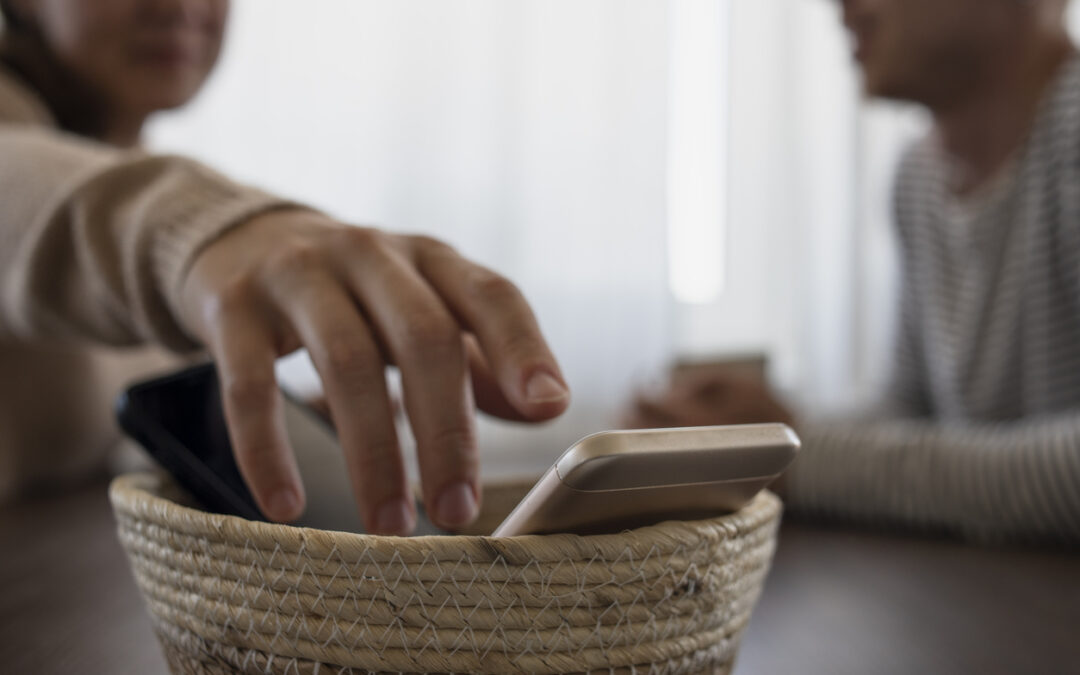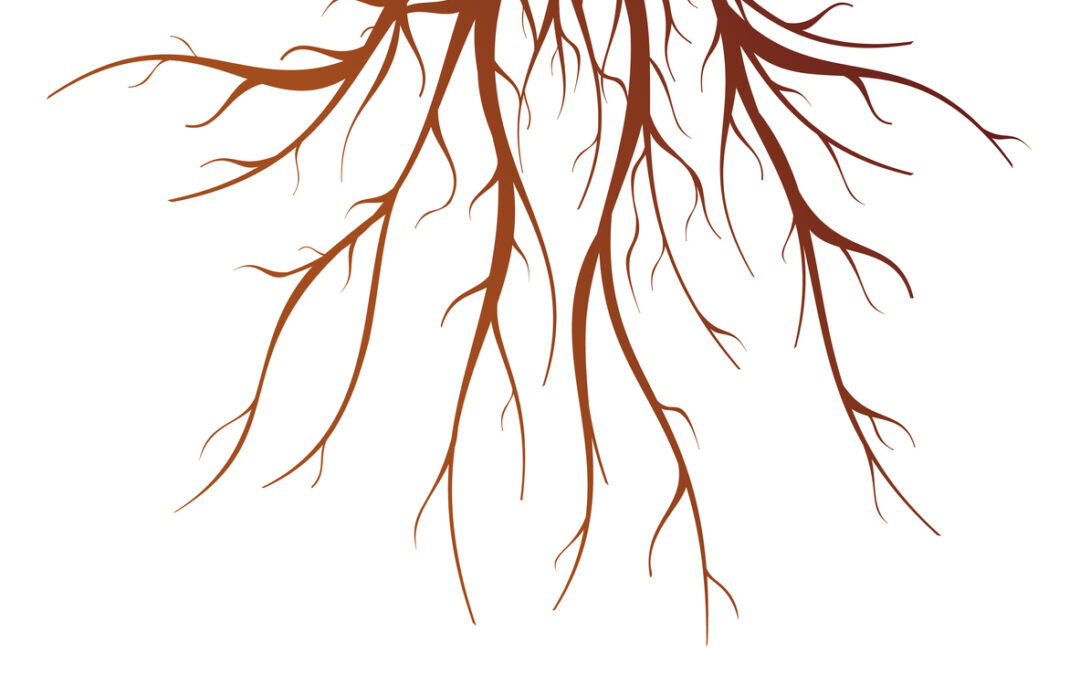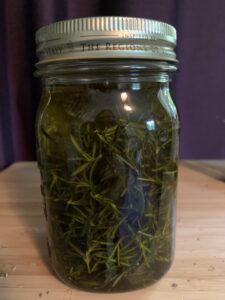
by Jen Owen, N.P. | Nov 4, 2020 | Mind-Body Medicine
With everything that’s been happening in the world and in our country right now, it’s important to keep track of your own energy.
It’s wise to take a few moments every day and consider how your energy is doing with all of it.
Are you exhausted?
While we don’t have control over what’s happening, we DO have control of how we react and how we engage.
When we’re grounded and aware, we don’t engage as much and we don’t have such strong reactions.
When we let ourselves get too engrossed, we feel all the effects and our energy systems get overloaded and burned out.
Here are 5 tips for protecting your energy during stressful times:
#1
Take social media and email completely off of your phone or log-out when you’re done. This will force you to go to a larger device to engage or you’ll have to consciously log-in to get access. When you see the log-in page, you can check in to make sure you’re not simply on auto pilot and ensure you do in fact want to log-in.
#2
Before you turn on the news or engage in social media, stop and check in with where you are energetically. Are you feeling strong and ready to read all the stuff? Are you engaging because you really want to engage or because you’re lonely or frustrated? Is there something else you could do that would ensure your needs are being met and that you’re staying strong amidst the chaos?
#3
Turn it all off before you get reactive. I can take about 5-10 minutes of social media or news right now. As soon as I find myself feeling any emotion I don’t want to feel, I turn it off. It’s not worth it! I can always check back in an hour or so and see if there’s any new news. Most of the time, there’s not. You can usually glean all you need to know from the day within 5-10 minutes.
#4
Unfollow or unfriend people who upset you. I know we must be discussing the issues of our times and I also feel strongly that social media posts are not always the productive place to do so. You DO NOT have to stay friends with people on social media for any reason. It’s your space and you can let whomever you want into it. I won’t tolerate racism, sexism, homophobia, or anything else I believe strongly against to be on my page. I also will not tolerate any sarcastic remarks made on my posts. I don’t have to, and you don’t either!
#5
Have an email and social media free day. Pick one day a week when you don’t log in at all. Sundays are often that day for me. . It’s so nice to spend time with myself and my husband without the interference of the outside world. If a whole day feels like too much, commit to a few hours now and then and reap the benefits.
More than anything, we must protect our precious energy and make sure we keep what we need available for us!
These are some of the things I do to make sure I can show up for all of you.
What other things do you do?
Please comment below and be sure to share this post with friends who need to hear it, too.
Protecting energy has been a very common topic in my integrative clinic recently. A patient may be here to discuss test results and we realize that their energy is the most important topic for the appointment. We’ll sort out where they’re giving energy away and brainstorm ideas to keep them grounded and feeling their best.
Working with me as your health care provider means we consider all aspects of your life in our care plan.
Schedule here to experience true integrative medical care.

by Jen Owen, N.P. | Oct 28, 2020 | Mind-Body Medicine
I know, I know….we all know about self-care.
Yet, are we doing all the things we possibly can to care for ourselves?
Times are interesting right now to say the least. I find myself more tired than usual and I think it’s all the noise. Noise from the news, noise from the grumbling on social media, noise from the unexpected extra stress COVID has placed on my life.
Taking time for myself has become more important than ever.
Today, I’m simply listing every possible thing I can think of that we can all do to give ourselves a little respite.
Read through the list and see if you can find 1-2 you can add this week.
Self-Care Ideas:
~Take a long bath (bonus for adding salts or smells that help you relax and candles)
~Take a nap (even 20 minutes of lying down can make a big difference!)
~Sip a nice cup of herbal tea
~Get a massage
~Give yourself a massage
~Walk or even just stroll outside
~Deep breathing
~Do a jigsaw puzzle
~Read feel good fiction
~Watch a chick flick
~Do something artistic: paint, color, draw
~Take Facebook and Email off of your phone
~Play with your kids or pets (really play—be all in!)
~Listen to music
~Dance to that music
~Soak your feet in roses, lavender, or chamomile
~Cuddle
~Journal your feelings or frustrations
~Laugh!!!
~Sleep soundly (and get help if you’re not)
~Make yourself a smoothie or green juice and really enjoy it
What did I miss? What other ideas do you have?
Please comment below and share widely with any stressed out friends or family.

by Jen Owen, N.P. | Oct 23, 2020 | Mind-Body Medicine, Pelvic Health
If you missed “What the Heck is Pelvic Care Anyway (Part 1)” and you’re on Facebook, you can watch it here or you can just read the recap below.
If you already watched the video or know the basics, you can scroll down to Part 2 now!
Part 1 Recap:
Holistic Pelvic Care™ (HPC) was created by physical therapist, Tami Lynn Kent. After she learned the skills to perform pelvic floor therapy for female-assigned humans, she began noticing that the people she was working with were having emotional responses to the treatment.
After working with hundreds of females, she began to see patterns in the pelvic area. She found her clients were often holding on to emotions, feelings, and memories inside what we call the “pelvic bowl”. By combining the hands-on work to the area with breathwork and visualization, Tami was able to help clear these “stuck” experiences and make way for more empowerment, self-love, and vitality. And, she teaches other practitioners how to do the same, including me!
There are large muscles inside the pelvis that get little to no attention. We can get “knots” in these muscles just like we get in our shoulders, necks, etc. that are often easily relieved with massage to the pelvic floor just like massage to other parts of the body.
Through the combination of releasing the muscles and using breath and visualization, pelvic symptoms are often greatly relieved. Some of the symptoms helped with HPC include: long, heavy, or painful periods, low libido, fertility issues, menopausal symptoms, and low back and hip pain, just to name a few. HPC is also very helpful after childbirth and for healing from a miscarriage.
If you want to learn more from Tami’s experiences, I highly recommend reading her book, Wild Feminine.
Okay, on to….
Part 2:
I think the most common reaction I get when I tell people about this work is that they think it sounds really weird.
And then, once people experience it, they actually comment things like, “It was weirdly not weird at all!”
Holistic Pelvic Care™ is truly “women’s healthcare”.
How did women’s healthcare become all about a pap smear? When we think of women’s health, we immediately picture ourselves with our feet up in stirrups ready to brace ourselves for discomfort. Am I right?
Let’s address this aspect now. HPC is totally different from a pelvic exam. There are no stirrups. You’re lying on a warm table on pretty sheets. I take a look at your “parts” only to see where I’m going so I don’t poke you anywhere you’d rather not get poked. The rest of the treatment is done with me by your side and you are covered with the sheet.
The massage aspect is done with only one finger, so it’s nothing like a speculum used for regular pelvic exams. We are then communicating throughout the entire experience as to your comfort level. The goal is to never cause pain or trauma to your sacred spaces.
Does that help you understand this better?
If you’re having any sort of pelvic area symptom, I strongly urge you to consider coming in for Holistic Pelvic Care™ soon
The Other Benefits of Pelvic Care:
There’s one more very important thing for you to know. This care is NOT just for symptoms.
Even if the body is not giving us a physical signal that there’s something going on (like pain, discomfort, or dysfunction), there is amazing healing that can be experienced with the work.
More and more of us are investing in pelvic care for health maintenance, prevention of symptoms, and for personal connection.
Often people come to me for HPC when they are looking for more energy, more vitality, and even more money.
Not sure if HPC is for you? Curious about the energy work and how it can help? Consider attending one of our monthly Pelvic Bowl Meditation Circles. During these Circles, I walk you through a similar visualization process as we do during a session.
Featured Podcast:
Last year, I was featured on the amazing LaToya Zavala’s Podcast, “Freed and Powered Up”. The topic of our discussion was called, “So, What About Sexual Healing”.
If you want to hear some more about this topic, you can listen to it here.
I welcome all of your thoughts and questions about this topic. What else do you want to know?
Please comment below and share this article widely, so more of us can know about this important work.
If you’re ready to schedule for Holistic Pelvic Care™, click here for more information.

by Jen Owen, N.P. | Oct 14, 2020 | Mind-Body Medicine
A while back, I listened to a talk by Dr. Marisa Peer. She’s an author and therapist who works with international superstars, CEOs, royalty, and olympic athletes. Her technique is very simple. She helps people to realize that they are enough.
Isn’t that really what is holding most of us back? We worry that we are not enough. We think we are not enough as a spouse, daughter/son, mother/father, friend, etc. and we are not enough in our work. We are always striving to be more, be better, be perfect, or we just give up all together, because we are sure we’re never going to be enough.
We may have been told by others that we aren’t enough for a very long time.
But, what if we just accepted that we ARE enough? It’s very freeing, really.
Stop right now and put your hand over your heart and say to yourself, “I am enough”.
What feelings come up for you?
Do you immediately think of a role where you don’t feel like you are enough?
Maybe you couldn’t even say the words?
Dr. Peer recommends saying, “I am enough” multiple times each day. She suggests hanging a sign with these words on the mirror in your bathroom. She suggests saying them over and over again while you’re in the shower. You can also set phone alerts to go off throughout the day to remind you that you are enough.
When we repeat something over and over again (in our minds and out loud), the mind doesn’t have any other choice but to eventually accept it.
Dr. Peer says this about this technique, “In my 25 years as a therapist, I’ve discovered that the root of so many modern problems—hoarding, excessive drinking, compulsive shopping, and over-eating—come right back to a need to fill the inner emptiness of not feeling “enough” with external things. The more you tell yourself you are enough, the more you’ll believe it. It sounds so utterly simple—and it is—and all you need is the commitment to do it and the belief that it will work.”
When I think about the people I work with every day, I can honestly say that almost none of them think they are enough. Many are feeling inadequate in almost every role they play. In my experience, when we don’t fix the emotional roots to our physical symptoms, it is very difficult to have true healing. What if the process could fast track by just convincing ourselves that we are really enough?
To me it seems worth a try. So, I have a sign on my bathroom mirror and I have phone alerts set up to remind me all day that I really am enough. When my mind starts to place judgement on me for whatever reason, I snap my fingers and say, “I am enough”.
I joke with my friends and say that I retired from perfectionism. I really have, because deep down, I know….I am enough.
Please be sure to share this article with your friends and comment with your experiences below.
Did you know I have an online program where we do mindset work like this and much more? One of the program members just said this about her experience, “I wasn’t enjoying life for a very long time and now I’m handling things better than I ever have in my life. You’ve helped me calm my brain that’s overworked, overwhelmed, and overanalyzed”. Learn more here.

by Jen Owen, N.P. | Sep 30, 2020 | Mind-Body Medicine
My Dad was literally a jack of all trades. In fact, we used to tease that DAD stood for “Do-it-All-David”. One of his skills was electricity. When I was a little girl, I was on the other end of wiring more times than I want to remember. For those of you who don’t know, all those light switches are attached to wires that were guided through small holes in the walls and attic spaces of your house. It’s not an easy or particularly fun process. Sorry…I digress.
Anyway. When electricity is added to a house, the MOST important part is the GROUNDING wire. The purpose of a ground wire is to give excess electrical charges a safe place to go. In a properly grounded electrical system, that excess electricity goes directly into the ground. If home electricity is not properly grounded, the excess electricity can spark a fire or surge backward and harm your electronic devices and appliances.
You can think of your own body energy system in the same way. When you’re running around in your head all the time, you become ungrounded. you become reactive to what’s happening around you, rather than being able to roll with things. Sparks start to fly like anger, frustration, and annoyance. If you’re not grounded, there’s no place for those energies to go except up and out, or they stir inside of you causing you to feel exhausted and “burned out”.
Make sense?
Getting grounded isn’t hard to do.
Here’s how:
If you can be outside it’s even better, but anywhere will do.
- Stand or sit with your feet solidly on the ground (floor)
- Pretend you have roots like a giant tree coming out of your legs and feet
- See them large at the top and spindling smaller and going down deep into the ground
- Stand or sit and feel how it feels to be connected to the ground below you
- If you’re feeling any “sparks” at the moment, you can send them down those roots and ground them.
I recommend doing a grounding exercise every morning before you start your day and any time during the day when you’re feeling “off”.
Try it for a few days and let me know how it goes. Post your comments below and be sure to share this article. If the whole world was more grounded, I think things we feel a whole lot differently, don’t you?
Want to ground with me? Join my monthly Restore & Revitalize Women’s Circle every 2nd Saturday at The Flourish Center. Learn more and sign-up on our Events page.

by Jen Owen, N.P. | Sep 30, 2020 | Integrative Medicine, Mind-Body Medicine
Are you feeling strained and drained? Those are the best words I can find to describe what I sometimes feel myself, and also see in my patients.
We’ve had so much to deal with these past few years.
How are you coping? How are you keeping away the strain and drain?
There are three specific effects of strain and drain I often see: foggy thinking, trouble sleeping, and feeling tired. This makes a lot of sense.
Most of us are running around in fight-or-flight. If you don’t know what I’m talking about, start here. This causes elevations in the stress hormone cortisol. Short-term elevation of cortisol affects our sleep and our energy, and long-term elevation of cortisol can actually reduce the number of brain cells and/or stop new brain cells from being made.
The best way to handle this is to do everything we can to keep cortisol levels down. This can be done in several ways. You can do deep breathing and meditation. You can add an adaptogen herb as I discuss in this article. And, here are some specific tips for each of the three main areas of strain and drain.
The 3 Effects of Strain & Drain:
#1: Trouble Sleeping
As you can imagine, all the extra cortisol is affecting our sleep. My patients are describing fitful sleep and waking up for no reason and not being able to fall back asleep.
If this is you, too, it’s more important than ever to practice sleep hygiene. This means getting off of technology at least an hour before you want to be asleep, making sure your room is as dark as possible, maybe taking a warm bath or long shower before bed, and considering a nice cup of relaxing tea.
We have to allow the body time to let the cortisol levels reduce. If we go to bed when they’re still high, we won’t be able to fall asleep or stay asleep.
So, just like Peter Rabbit’s mother, why not try a nice warm cup of chamomile tea?
Science has yet to definitively prove that chamomile actually does something in the body that induces sleep, yet herbalists have been using the herb for centuries for this very purpose.
With very few side effects, it’s worth a try.
Add 1 T. dried flowers per cup of water, cover, and let it steep 20-30 minutes. Then strain and enjoy.

#2: Feeling Tired
If we’re feeling more stressed in general and not sleeping, it makes sense that we’d be feeling tired during the day.
One way to get more energy is through B-vitamins. B vitamins help you convert your food into energy. Without a proper amount, we can feel low in energy.
I always recommend more mindful eating of vitamins first and add a supplement only if needed. Foods high in B-vitamins include whole grains, nuts/seeds, dark green leafy greens, meat, poultry, seafood, and eggs.
If you need more support, you can visit a health food store like New Seasons and purchase a Vitamin B-Complex. Some people have genetic issues which make it difficult to properly assimilate B-vitamins, so taking large amounts could cause anxiousness. Be sure to come and see me or another expert for advice on which supplement would be best for you.
#3: Brain Fog
The last effect of these times I’m seeing frequently is brain fog. This can be helped with all the above, as well. Here’s another fun tip… rosemary.
Rosemary has gotten a decent amount of press for its effect on memory. Small studies have proven that when people smell the oil, they remember things better. Interesting.
What I find with rosemary is that is makes me think better in general. It’s like a mini mental stimulant. You can use the essential oil and smell it as you start to feel foggy or you can simply use the plant. It grows everywhere here in Portland. Simply cut a small sprig and keep it near you. When the brain fog hits, rub your fingers along the leaves and smell. It’s that simple.
Here’s some rosemary oil I have brewing right now. I’ll use it on food and to rub it on my skin on days when I need a little boost.



It’s often the simple things that seem to make a big difference. Slow down and stay in your body. Try not to let you mind run wild all the time. This doesn’t support healthy cortisol levels and can cause all the effects we’ve discussed.
I’d love to hear from you. How are you handling the strain and drain? Is there anything else I can do to support you?









Recent Comments